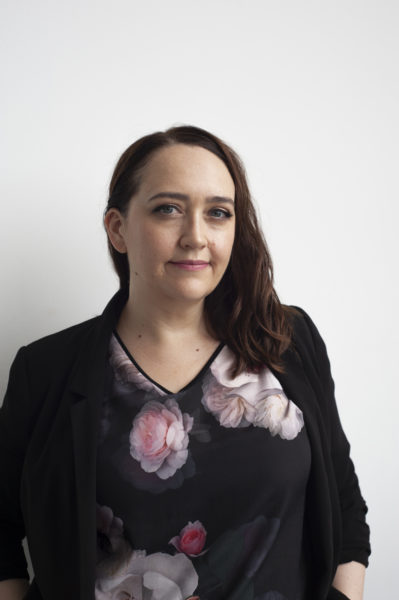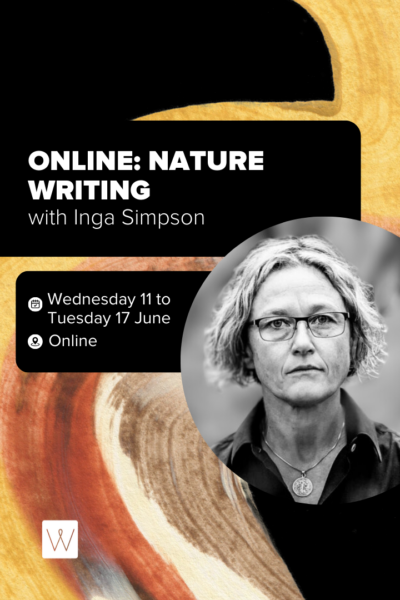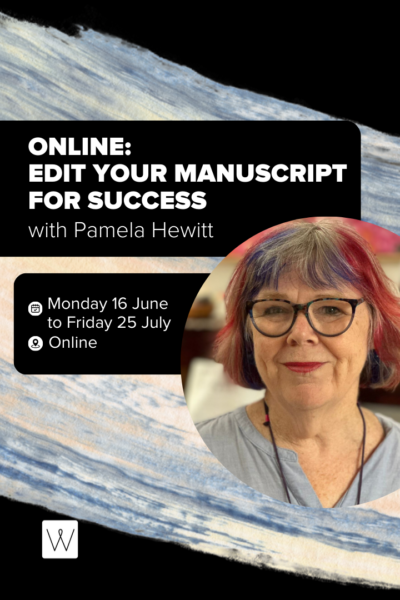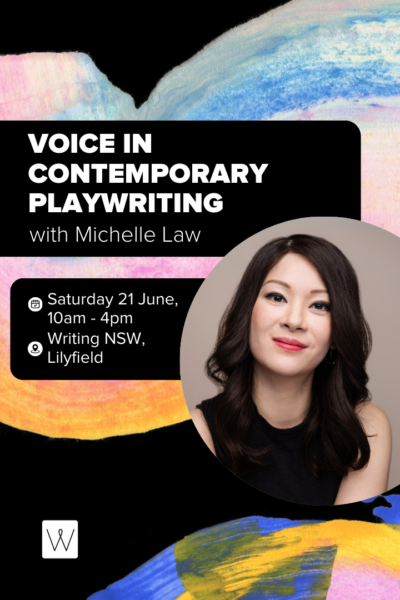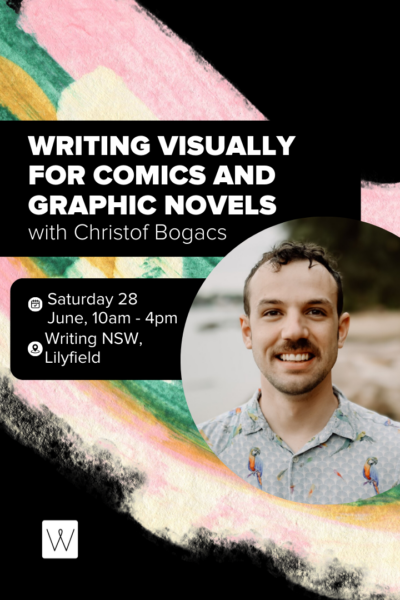Year of the Novel: Three Phases 2018
 Emily Maguire
Emily Maguire
Phase One: 8 x Tuesday evenings: 6, 13, 20, 27 February; 6, 13, 20, 27 March, 6:30-9:30pm
Phase Two: 8 x Tuesday evenings; 5, 12, 19, 26 June; 3, 10, 17, 24 July, 6:30-9:30pm
Phase Three: 8 x Tuesday evenings: 18, 25 September; 9, 16, 23, 30 October; 6, 13 November, 6:30-9:30pm
Make 2018 the year you finally write that book. Over three phases of eight weeks each, acclaimed author Emily Maguire will give you the tools, support and encouragement you need to plan, write and edit your novel.
In the first phase, we’ll work on getting the bare bones of your novel down on paper (or screen). We’ll talk about generating ideas and planning, and look at the basic elements of fiction – point of view, voice, narration, character, plot, dialogue and setting.
In the course’s second phase we’ll put some flesh on the bones of your novel, looking at structure, style and theme, and going deeper still with character, voice and plot. As we approach the year’s halfway mark we’ll also talk about how to stay focused and motivated to see this thing through to the end.
Finally, in phase three, we’ll work on turning your very good novel into a brilliant one. We’ll cut the fat, plump up the too-lean bits, polish the language and ensure you have the knowledge and skills necessary to launch your novel into the world.
Throughout, Emily will use examples from classic and contemporary fiction and from students’ work-in-progress to explore the topics covered, and guest speakers will share their insights to further expand your understanding of how published writers do what they do.At the end of the year, we’ll celebrate your accomplishments by throwing a party at which friends, family, other writers and industry insiders can hear you read from your novel.
You should come to the first class with a specific work-in-progress or idea for a novel. Sharing and discussion will be encouraged, and there will be ample opportunity for you to speak to the group about how various techniques and lessons may be applicable to your specific project, however, one-on-one detailed feedback from the tutor will be limited.
(Please note that while the three phases are designed to build on each other, each may also be taken as a stand-alone course.)
Phase One: Writing the bones
This phase is all about getting the bare bones of your novel down on paper (or screen). We’ll talk about generating ideas and planning, and look at the basic elements of fiction – point of view, voice, narration, character, plot, dialogue and setting.
1. Introduction & planning
Setting goals, creating structure, identifying obstacles & figuring out ways to get past them.
2. Inspiration
Generating ideas, re-invigorating memories, stealing from life, stealing from history and making the old and tired, vigorous and new.
3. Story and plot
The difference between story and plot, and how you can make one into the other.
4. Character
In this session we’ll discuss what makes a character complex and compelling and what you can do to make you character as alive on the page as s/he is in your head.
5. Point of View & Voice
We’ll talk about the advantages and disadvantages of first, second and third POV, and which works best in what circumstances. We’ll also consider the relationship between POV and voice.
6. Showing and telling
Beginner writers are often told to ‘show, not tell’, but it’s not as simple as that. This week we’ll talk about the difference between showing and telling, and how to get the balance right.
7. Dialogue
Dialogue is an essential tool in both characterisation and plot development. We’ll discuss how brilliantly written dialogue can make your characters more believable, your plot more suspenseful and the world of your novel more vibrant.
8. Setting
Using the details of time and place to create atmosphere and solidify your invented world.
Phase Two: Muscles, guts, flesh and blood
Phase two is all about putting flesh on the bones of your novel, giving your story depth and force and vigour by looking at structure, style and theme, and going deeper with character, voice and plot. As we approach the year’s half-way mark we’ll also talk about how to stay focused and motivated to see this thing through to the end.
1. Workshopping what needs to be done
Whether you’re back from the break after Phase One, or starting with us for the first time, this is a week to take stock of your work in progress.
2. Structure
Structure is what turns a collection of scenes into a satisfying novel. We’ll talk about scenes and story arcs, and look at some common structural templates.
3. Character: going deeper
Avoiding stereotypes, identifying archetypes, writing across gender and cultural lines and making full use of minor and supporting characters.
4. Advanced plotting: the relationship between character and plot
Is your character mostly pulled through events by twists of fate or is your plot driven by choices your character makes? We’ll look at how integrating character and plot development makes both elements stronger.
5. Suspense, story questions and narrative drive
This is where we ask ourselves: how am I going to keep the reader turning pages? We’ll look at backstory, time-jumps, transitions and pacing.
6. Voice, tone & style
What is voice and how do you find, or develop, yours? What’s the relationship between voice and tone? We’ll talk about metaphor, imagery and finding the exact right word every time.
7. Theme
Luminous prose and brilliant construction may make a story nice to read, but without theme the reader is left thinking ‘so what?’ This week we’ll see how identifying theme can help a writer turn a good story into a moving and memorable one
8. Forging on
We’ve been working on our novels for over half the year by now. It’s time to talk about smashing writer’s block, pushing through frustration and dealing with doubt.
Phase Three: Nip, tuck, primp and preen.
This is where we take a long hard look at your very good novel and figure out how to make it brilliant. We’ll cut the fat, plump up the too-lean bits, polish the language and do whatever else is necessary to ensure your novel is ready to face the world.
1. Revision and editing basics
Learning to read like an editor. We’ll also talk about the difference between structural, line and copy-editing.
2. What’s missing?
Every novel-in-progress has weak points and this week we’re going to confront yours head on. Whether it’s a weak antagonist, a giant plot line or dodgy dialogue we’ll work one-on-one to pin-point your problems and come up with strategies to fix them.
3. What needs to go?
You’ve done a lot of work since you first began this writing journey. Now it’s time to go back and pull down the stuff you no longer need. We’ll pull out the scissors and ruthlessly cut out all those no-longer necessary explanations, descriptions and conversations.
4. Beginnings
It may seem a bit late to be talking about beginnings, but it’s often only once you’re close to the end that you can see where you should have begun! This week is all about making sure your novel starts where and how it needs to (know that you know where it’s going).
5. Endings
Endings are tough, but we’re going to be tough right back at them! We’ll talk finales, climaxes, cliffhangers, epilogues and the difference between an open-ending and no-ending at all.
6. Word by word
This week we go micro considering the rhythm and flow of sentences and hunting down filter words, cliches and clumsy constructions.
7. Over to you
This week’s content will be determined by the needs and concerns of the students, and will include a significant amount of one-on-one time with the tutor for each student.
8. Where do we go from here?
Freelance editors, manuscript assessment, agents, publishers, competitions and more.
Participant Requirements
Pen and paper

